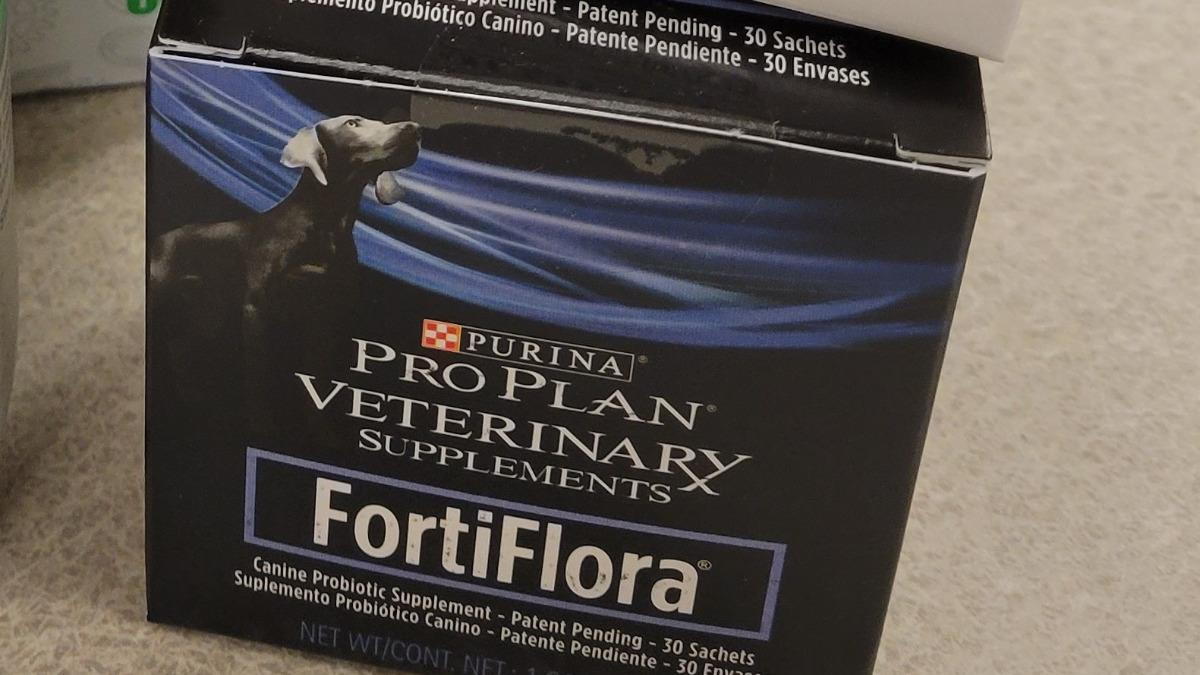Are Probiotics Good for Pets?

- posted: Nov. 07, 2021
Are Probiotics Good for Our Pets?
The microbiome is a population of beneficial bacteria that live in the intestinal tract of most mammals including humans, dogs and cats, and other animals such as rabbits and rodents. They can aid digestion, improve the immune system and reduce the number of harmful bacteria. Illness, poor diet, drugs and stress can upset the good gut bacteria in dogs and cats. Adding probiotics to the diet may help reduce stress and anxiety and can promote a healthy GI tract. But, do pets need them? Let’s learn more!
Probiotics are supplements containing beneficial bacteria that improve intestinal health. There are many such supplements out there for us humans. Should our pets be using probiotics too? Probiotics can be useful if your pet has diarrhea, has recently been on an antibiotic or has a chronic condition such as inflammatory bowel disease. They can replace good gut bacteria that may be destroyed by certain medications such as antibiotics or lost during a bout of diarrhea. And, FYI, you may also see pre-biotics mentioned with probiotics. Pre-biotics are food for the microbes, usually some form of fiber. Most pet foods contain sufficient amounts of pre-biotics and some probiotic supplements may add a pre-biotic as well, but ask a vet if you have questions about pre-biotics for your pet. Healthy pets eating a good quality diet do not usually need pre- or probiotics, but they are generally safe for all pets.
Some caveats for probiotic use in pets:
- Probiotics come in several forms: powders, pastes and capsules are most common. Use a form your pet is likely to take. For instance, capsules are usually fine for dogs, but maybe not so easy to give to a cat.
- If you are using a probiotic while your pet is also taking an antibiotic, separate the probiotic from the antibiotic by at least one hour. Otherwise, the bacteria in the supplement will likely just be destroyed by the antibiotic your pet is taking. You may want to wait until the course of antibiotics is finished before starting a probiotic.
- Make sure the product you are using is for the proper species. While a human probiotic is not harmful to your pet, our gut bacteria do differ from those of dogs, cats and other animals. Your pet will receive the best benefit from a product containing multiple strains of species-specific bacteria.
- Probiotics are generally safe and have few side effects, but some pets may experience gas, bloating or symptoms like diarrhea, constipation or nausea, so introduce slowly or stop use if your pet seems unable to tolerate a probiotic.
- While foods containing natural probiotic bacteria such as plain yogurt, kombucha, or fermented vegetables like sauerkraut or kimchi can be fed in small quantities to dogs and cats, the bacteria found in these products may differ from typical gut bacteria in our pets and these foods should be fed in moderation to ensure your pet does not experience stomach upset.
Probiotics can be beneficial to our companion animals, keeping pets regular, improving gut health, and even reducing stress; however most healthy pets eating good quality pet food do not necessarily need supplementation. If you choose to give your pet a probiotic, remember to choose one for your pet’s species to get the most benefit and choose a formulation that your pet will easily take. If in doubt, consult your vet!
This blog brought to you by the Patton Veterinary Hospital serving Red Lion, York and the surrounding communities.
https://www.petmd.com/dog/general-health/probiotics-dogs-what-you-need-know
https://www.veterinarypracticenews.com/prebiotics-probiotics-and-intestinal-health/
Location
Patton Veterinary Hospital
425 E Broadway
Red Lion, PA 17356
